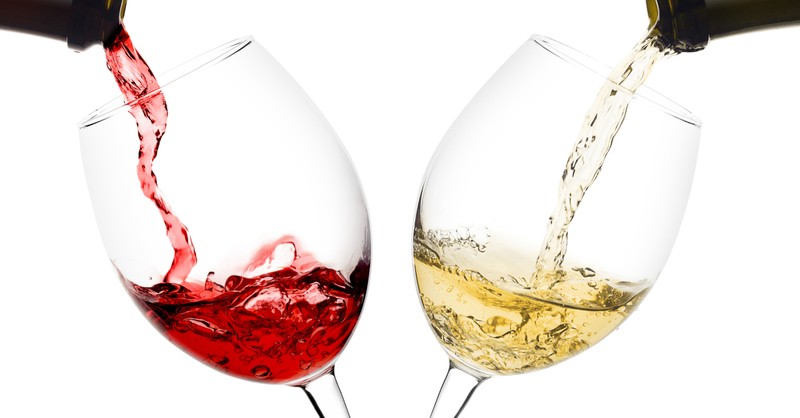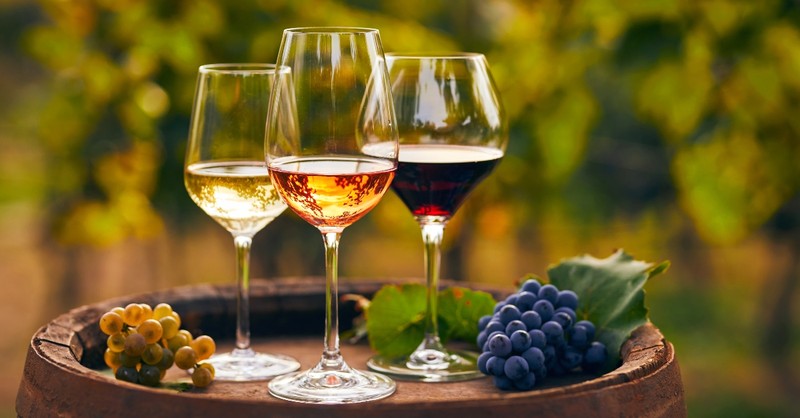
“I don’t drink, cuss, smoke, chew, or run around with women who do.”
Growing up in the local church, we used to say this line all the time, especially in Sunday School class as a teen, trying to help us kids say “no” to the culture that would tempt us with such things. As narrow and somewhat legalistic as those statements might have been, they weren’t necessarily wrong or bad. I was offered various substances by “friends” throughout high school. Fortunately for me, my church community was also loving and encouraging, and that combination helped me to be friends with others while rejecting some of their recreational activities.
And I definitely tried to stay away from the girls who did that stuff.
I learned that avoiding certain things didn’t keep me from having fun, probably the opposite, and kept me out of more trouble than I already got into.
The Bible doesn’t say anything about smoking or chewing. Of course, there are mentions of talking and having honorable speech and whole Proverbs passages about staying away from certain kinds of women.
But what about alcohol? Wine was a staple in the ancient world. Therefore, we get several occasions where the drinking of alcohol is addressed. How does the Bible speak of wine and alcohol? Important for the discussion is the example of Jesus. Wine shows up several times in the Gospel narratives. Did Jesus drink wine?
Photo credit: Unsplash/kmellis

Did Jesus Drink Wine?
Many Christians have strong convictions about drinking alcohol, with a wide and varied spectrum in different traditions and denominations. From teetotalers that got alcohol banned in America’s Prohibition era to Benedictine monks who made winemaking a core part of financing their monasteries, the church has diverse perspectives on the subject.
But what does the Bible say? Specifically, regarding Jesus drinking wine, what do we see in the Gospels?
Jesus was around wine a great deal in his ministry, whether at weddings, meals, or the Passover celebration the night before his death. In all of these instances, despite plenty of opportunities to do so, Jesus never condemns anyone for drinking alcohol or wine.
For Jesus himself, we can look at two scriptures that indicate he also drank wine. First, in Matthew 26:27-29, he institutes the new covenant by sharing a cup of wine with the twelve apostles. He blessed the wine and instructed the men to drink from it. Then Jesus makes this interesting statement, “I will not drink of this fruit of the vine from now on until that day when I drink it new with you in My Father’s kingdom.”
This fruit of the vine means wine. The implication is he drank before but wouldn’t drink again until the kingdom’s fulfillment. He doesn’t make this statement to have anything to do with alcohol, good or bad. It’s about celebration and instituting a New Covenant. Wine symbolizes blood and the wedding analogy Jesus spoke of at the Last Supper, as well.
Next, Jesus noted that his critics called him a glutton and a winebibber (another term for drunkard) because he came “eating and drinking” (Matthew 11:9, Luke 7:34). He was revealing the critics’ hearts since they attacked him whether he fasted or went around eating with people (sinners especially). They called him a drunk because they saw him drinking wine with sinners. However, since Jesus was tempted yet sinless (1 Peter 2:22), he drank wine but never took it so far that he got drunk.
Photo credit: Unsplash/Alasdair Elmes

When Did Jesus Turn Water into Wine?
John makes a big deal about the first ministerial miracle of Jesus. Invited to a wedding, Jesus shows up with his mother, Mary, and a few of his disciples in attendance. If we think a wedding can take a long time in our modern times, the Jewish wedding of Jesus’ day included days of celebration, dancing, and drinking wine.
The wedding celebration wasn’t over yet, and the host ran out of wine. This was a big deal. The party was going to stop without that wine, at least culturally. Mary somehow knows what’s happening and tries to get Jesus to help. He eventually does, going into a storage area where there were large cisterns of water for washing, also culturally important for the cleanliness of the Old Covenant Law. There he has servants fill the receptacles with water and turns that water into wine.
Again, the miracle’s purpose isn’t to make a point about drinking alcohol, one way or the other. Still, Jesus wouldn’t have turned water into wine if it were an evil substance.
Since it’s clear Jesus drank wine and had no problem with it, some Christians argue that the wine wasn’t alcoholic. It was just grape juice. Yet, when the master of the wedding party tastes the wine, he is surprised that it’s the best wine he’s had. Why?
People usually bring out bad wine at the wedding’s end. The party is winding down, and maybe they’re trying to get people to go home. Plus, for people who have been drinking wine for a few days, their senses are a little dulled, and they can’t as easily discern good wine.
Jesus gave the best.
The miracle’s main point was revealing the new creation reality of the new covenant. Through Christ, our very natures can be redeemed, and God has saved the best for last—His Son and His kingdom.
Photo credit: ©Getty Images/Andrey Elkin

What Did Jesus Say about Wine?
History also shows that fermented drinks were common in most ancient cultures for one simple reason: they couldn’t trust the water. Water can contain diseases and bacteria. Ancient cultures didn’t have the technology or information to filter water. People routinely died from bad water. Fermenting a substance such as grape juice kills that bacterium and gives something safe to drink. Jesus would have been raised in such a culture.
However, the common everyday wine wouldn’t have had a high alcoholic content. That’s not very practical. But it would have had a bit of alcohol, hence why Jesus’ critics could call him a drunk and get away with it.
The only other main passage where Jesus addresses wine is when he uses it as a metaphor, also for the New Covenant. “And no one puts new wine into old wineskins; or else the new wine will burst the wineskins and be spilled, and the wineskins will be ruined. But new wine must be put into new wineskins, and both are preserved. And no one, having drunk old wine, immediately desires new; for he says, ‘The old is better.’” (Luke 5:37-39)
This was a common enough practice that he could make an example out of it. “No one” does these things with new and old wine. The same is true of this new covenant. The new work of God needed a new covenant and couldn’t work within the old (we can read Hebrews for a more detailed argument for that).
Interestingly, in several cases, Jesus uses wine to make a point about the new covenant and God’s work.
Photo Credit: ©iStock/Getty Images Plus/Rostislav_Sedlacek

What Does the Bible Warn About Drunkenness?
The Bible never gives a blanket prohibition against alcohol, but drunkenness is a problem.
Drunkenness is never looked at in a good light in scripture. After the flood, Noah grows a vineyard, makes wine, and gets drunk. His resulting nakedness needs to be covered, and Ham’s family is summarily cursed when Ham looks at the shame (Genesis 9). Sodom and Gomorrah are destroyed, and Lot is left alone with his daughters, who have no children. They get Lot drunk and have incestuous children (Genesis 19:30-36).
Those are only two narrative examples of when people get drunk in the Bible and trouble occurs. The scripture is consistent on this point. Drunkenness leads to bad decisions that have consequences.
The Bible also explicitly states that we shouldn’t be drunk: “Don’t be drunk with wine but filled with the Holy Spirit” (Ephesians 5:18). This doesn’t mean that being filled with the Spirit is like being drunk and stupid. Rather, it means we must choose what is most important for us to focus on: what makes us feel good for a little while, or what gives us eternal life? The Spirit gives us what lasts forever.
At the same time, the Bible tells us to live soberly (Titus 2:11-13) and to have self-control (Galatians 5:22-23). We can’t be drunk and live the life God has called us to, to make sound and wise decisions, to keep our wits about us in a dangerous and broken world. Since part of the fruit of the Spirit is self-control, part of being filled with the Spirit will be acting accordingly, not out of control.
Photo credit: ©Getty Images/Katarzyna Bialasiewicz

Should Christians Drink Wine or Alcohol?
Scripture warns us to avoid drunkenness, the danger of living for our own pleasure in drunken parties (Romans 13:13-14). But didn’t Jesus keep the party going at a wedding with wine? Didn’t he instruct people at the Passover to drink wine?
We party differently than the world. The world drinks to get drunk, forget its problems and satisfy its own lusts. We party in the kingdom, but it’s different.
We party in the kingdom because of God’s amazing things. We celebrate because we have been delivered by God, who loves us abundantly. Marriage is a symbol of God and his church (Ephesians 5:22-32), and the fulfillment of all things will happen with a type of heavenly wedding (Revelation 19:6-9). Therefore, Jesus continually uses weddings to show the new relationship available with the Father through the Son and Spirit, and we should celebrate that.
People of the kingdom might also drink wine at Passover like Jesus. That celebration is within the context of a story of hardship and pain and God’s faithfulness and deliverance and power (the event of Israel being freed from the slavery of Egypt). It’s the exact opposite of forgetting our problems. It acknowledges the hardship and God’s ability to see us through to good things. That’s the party to invite others to (Luke 15:1-10).
Photo credit: ©Getty Images/Prostock-Studio

How Christians Can Support Each Other’s Decisions Regarding Alcohol?
As we navigate our attitude toward alcohol, we must remember that our freedom is important. In Christ, we are completely free. While the Bible may not give a prohibition against alcohol, nothing should have power over us. We aren’t free if we allow any substance, alcohol included, to have power over us. We all deal with different issues. If we can’t be in control and have authority over drinking alcohol, then we shouldn’t. Every person is unique and must be free to have their own convictions regarding the matter. We should be sensitive to diverse perspectives, remembering not to judge God’s servants if they differ on food and drink details (Romans 14:17).
The core issue is remaining free and sober-minded to do the will of God.
Peace.
Further Reading:
Christians, Alcohol, and the Bible
Should Christians Drink Alcohol?
Photo credit: ©Getty Images/monkeybusinessimages
Originally published Friday, 10 February 2023.




